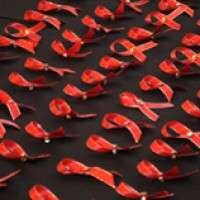UNODC helps female injecting drug users to fight HIV
UNODC helps female injecting drug users to fight HIV
1 December 2011 – World AIDS Day, commemorated today, is one of the most recognized international health days and a key opportunity to raise awareness and recognize victories in access to treatment and prevention services for those infected with HIV and AIDS. The theme for this year is “Getting to Zero: Zero New HIV Infections, Zero Discrimination and Zero AIDS-Related Deaths.”

In his message for this year’s World AIDS Day, Secretary-General Ban Ki-moon said: “With strong political will, reasonable financial resources and a firm human rights-based approach, we can achieve all of these targets. Momentum is on our side. Let us use it to end AIDS – once and for all.”
UNODC Executive Director Yury Fedotov said: “UNODC has a great number of highly qualified HIV and AIDS advisers in the field, ready to share their knowledge and experience with any country, if requested. Particularly in the area of drug use and in prisons, we are mandated by our governing bodies to assist countries. We stand ready to fulfil these mandates.”
Around half of the 34 million people living with HIV are women and girls. They are particularly vulnerable to HIV infection, owing to their social status. They are often deprived of their basic rights, leading to a lack of education and health services and to economic disadvantages. One of the main reasons for their vulnerability is the widespread violence against them.
As part of its work to help fight the scourge, UNODC supports efforts to improve the quality of prevention, treatment, care and support services for women and girls around the globe.
UNODC, working with local departments of the Government of Afghanistan, has established and strengthened comprehensive HIV services for female injecting and non-injecting drug users in the community and in prisons. Together with their spouses, these women receive a package of HIV prevention and treatment services. They are also referred for screening and treatment for blood-borne and other diseases. These services are available in certain prisons.
In Bangladesh, the Islamic Republic of Iran, Nepal, Pakistan and Ukraine, UNODC gives small grants to partners and oversees the implementation of similar services, in addition to outreach by women to women, specialized drug dependence treatment for women with or without children and the provision of sterile injecting equipment and other assistance.
Mr. Fedotov concluded: “The United Nations General Assembly strategy of reaching zero new HIV infections, zero discrimination and zero AIDS-related deaths is not just an aspirational goal. Data from various countries indicates that it is indeed possible. We know how to achieve it, because 30 years of AIDS have taught us what works. Working collectively, we can achieve zero by the year 2015 everywhere in the world.”
UNODC is a co-sponsoring organization of UNAIDS.
###
> United Nations (UN).
 The United Nations was established on 24 October 1945 by 51 countries committed to preserving peace through international cooperation and collective security. Today, nearly every nation in the world belongs to the UN: membership totals 192 countries.
The United Nations was established on 24 October 1945 by 51 countries committed to preserving peace through international cooperation and collective security. Today, nearly every nation in the world belongs to the UN: membership totals 192 countries.
When States become Members of the United Nations, they agree to accept the obligations of the UN Charter, an international treaty that sets out basic principles of international relations. According to the Charter, the UN has four purposes:
- to maintain international peace and security;
- to develop friendly relations among nations;
- to cooperate in solving international problems and in promoting respect for human rights;
- and to be a centre for harmonizing the actions of nations.
###
* The above story is adapted from materials provided by United Nations (UN)
** More information at United Nations (UN)



















